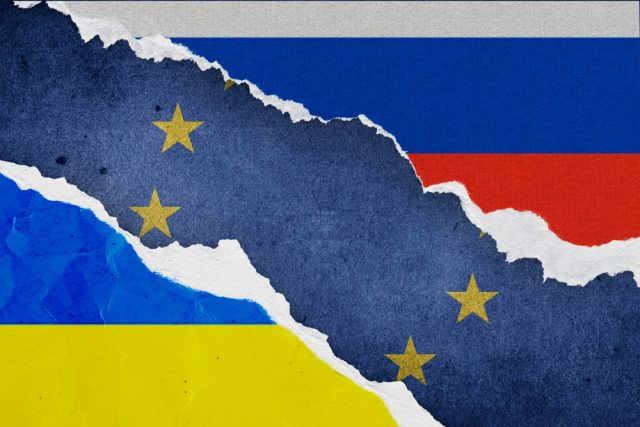
The conflict between Russia and Ukraine has been going on for a year now. In addition to the immediately tangible effects, there are collateral ones that could result in an ‘information war’, a war within a war.
New and traditional media narratives are exposed to Russian propaganda, in some countries more than in others. In this specific case, the focus is on Latvia, a land whose inhabitants are 36% Russian-speaking. Before delving into how communication works in a country like Latvia, it is necessary to take a step back and open a parenthesis on how, for some years now, information has been conveyed.
Since digital information took over, one is constantly exposed to fake and ‘selected’ news: those that, in a nutshell, only tell part of the truth, i.e. show only one side of the same coin. This became apparent during the pandemic, when the spread of fake or ‘selected’ news was almost unmanageable.
Therefore, it was difficult for users to get complete information. The enormous reach of this type of news is also and above all due to the inherent algorithm of social networks; if a user only follows certain types of accounts, it is easier for the algorithm to suggest specific types of news to them, regardless of their veracity.
Communication in Latvia
Back to Latvia, where the main risk could have been a nationalist uprising, considering the large number of Russian speakers and citizens of Russian origin living there. From the outset of the conflict, the Latvian government made its position clear, strongly condemning the Kremlin’s attack on Ukraine. However, for the news to be available to all, it also had to be translated into Russian and published on Russian-language websites.
Since February 2022, those who followed Russian state television or internationally renowned news programmes such as Russia Today and were not resident in Russia no longer had access to that kind of dissemination. The Latvia issue remains: the coexistence of two identities in the same state. A state that, as mentioned above, has aberrated the Russian invasion. Disclosure has always been timely on the part of the government, but as will be seen below, it has encountered several difficulties.
News and media
Meta, the parent company of Facebook and Instagram, released interesting data on the Latvian media landscape: currently, it is mainly based on online news. Before investigating the numbers found by Meta, another figure is given (Kemp, 2022): 78% of the Latvian resident population has a social account. Going back to Meta, last year in Latvia, Facebook had almost 875 thousand users, a figure of particular interest because misinformation, as explained above, comes from misuse that can be made for political purposes and the possibility of spreading untrue news or clickbait.
Let’s also clarify another point: in February 2022, in addition to the purchase of space on social networks and news agencies by the Russian state through disguised companies and third parties, websites were created following the same procedure; a source of information that, looking at the numbers, could reach thousands of individuals. In short, the opportunity to advance propaganda was expanded. Latvia adhered to the restrictions shared by Europe and NATO, also in terms of communication, as well as economic sanctions to be imposed on the Putin-led country.
The problem is that controlling cyberspace is perhaps one of the biggest challenges for governments in the world, as there are still no fully defined laws and regulations that can be adapted to all kinds of situations. The Budapest Convention and its protocols may be a point of reference, but there is still a lot of work to be done.
In any case, the Ministry of Defence of the Republic of Latvia establishes routine cybersecurity strategies, so attention to the issue is high. Even at the level of communication, the government has had to adopt a very precise line, but talking about conscription – should it be necessary to support Ukraine, and at the same time making it clear that Latvia would not be involved while endorsing measures against the Kremlin together with NATO and Europe, has led the population to have discordant views on the matter. If we then consider the country’s roots, its past with the USSR, the presence of many Russians on the territory and the economic consequences generated by the conflict, the issue becomes even more complicated.
A survey conducted by the market research agency Kantar Latvia last October found out what factors can be decisive when it comes to Russian propaganda and the possibility that it may or may not take root in Latvia.
The study involved a sample of people aged between 18 and 74. They were asked questions about how they prefer to inform themselves or the type of approach they have to news. It was found that younger people are less likely to welcome propaganda and that ethnic Latvians and respondents who speak Latvian at home are more resistant to Russian messages. What, however, decisively determines the rise or fall of Russian propaganda is the behaviour adopted by the Latvian government (one looks at the opportunities available to ethnic minorities, or the good use of public money) and the quality of life. In this specific case, the reference is to the modus vivendi in the days of the USSR, considered by many to be superior to that of today. These are the most preponderant elements that the government could strategically work on.



 Subscribe
Subscribe